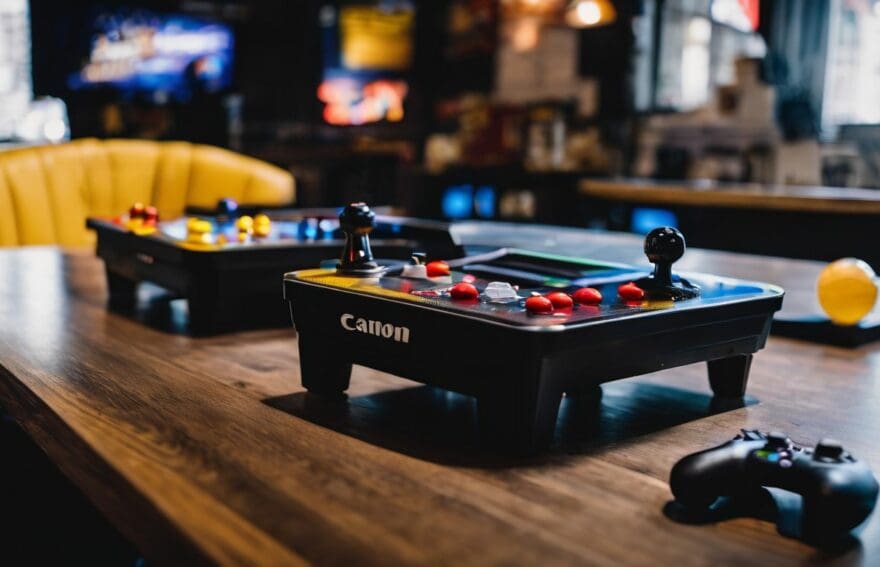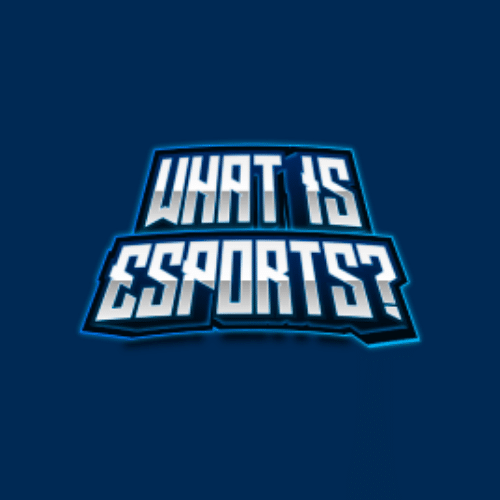Character Loyalty vs Tier Hunting in the FGC

Updated On: November 29, 2025 by 
Selecting your champion within the Fighting Game Community is rarely a simple affair. Many of us have wrestled with the decision: do we remain faithful to a cherished character or succumb to the temptation of clawing up rankings with a top-tier powerhouse? This piece seeks to untangle the often convoluted interplay between personal allegiance to a fighter and strategic tier considerations, informed by thorough research and rich anecdotes from fellow gamers.
Immerse yourself in our discussion and discover which path truly resonates with your gaming ethos.
Understanding Tier Hunting and Character Loyalty in the FGC
Tier hunting involves players constantly switching to the top-tier characters in a game for an advantage, while character loyalty is the commitment of sticking with one character despite their tier ranking.
Understanding these concepts is crucial in the competitive world of fighting games.
Definition of Tier Hunting
In the world of competitive fighting games, tier hunting is a strategy we see quite often. It’s about selecting characters deemed to be at the top of the tier list because they have advantages that can lead to more wins in tournaments.
The players who engage in this approach often adjust their character selection based on updates and changes within the game, which can influence which fighters are currently considered strong or weak.
We understand that not everyone follows this method. In fact, many gamers question whether hopping between high-ranked characters actually leads to better performance or if it might hinder developing deep mastery over one’s chosen fighter.
Nonetheless, tier hunting remains a significant aspect of competitive gaming as players continuously seek any edge they can get in their quest for victory.
Definition of Character Loyalty
Character loyalty in the Fighting Game Community (FGC) refers to a player’s deep commitment and attachment to a specific character, irrespective of their competitive ranking. This dedication often spans across an entire competitive career, as players continue to main their chosen character through various tournaments and gameplay situations.
Character loyalists prioritise their personal connection with a particular character, valuing factors such as emotional attachment, playstyle fit, and even loyalty to the design of the character over considerations of tier lists or competitive viability.
This devotion is not solely based on the character’s strength within the game but rather rooted in personal associations and preferences. While some players may opt for characters that are considered top tier for strategic advantages, others find fulfilment in sticking with characters they resonate with at a deeper level.
For many gamers, this bond plays an influential role in shaping their experiences and creating lasting impressions within the FGC community. The significant impact of character loyalty resonates throughout different aspects of individual gaming journeys and adds depth to the ever-evolving competitive scene.
Why Some Players Choose to Stick with One Character
Some players choose to stick with one character due to the emotional attachment they have developed over time. Others do so because the character’s playstyle fits their own preferences and strengths, while some are loyal to a character’s design or backstory.
Emotional Attachment
Passionate gamers often develop a deep emotional attachment to their chosen character in fighting games, regardless of tier rankings or competitive strength. This connection can stem from personal history with the game, fond memories associated with the character, or a strong resonance with the character’s playstyle and abilities.
Many players find joy and fulfillment in mastering a specific character they feel emotionally connected to, which adds depth and meaning to their overall gaming experience.
Novice gamers may find themselves drawn to characters based on emotional triggers such as nostalgia or a personal affinity for certain traits or abilities exhibited by the character.
Playstyle Fit
Transitioning from emotional attachment to playstyle fit, we recognise that for many players in the Fighting Game Community (FGC), the playstyle of a character is a significant factor in their decision to remain loyal.
Understanding how a character’s moves and abilities align with one’s preferred strategy and tactics can greatly influence a player’s attachment to a particular fighter. The compatibility between one’s personal approach to combat – whether it be aggressive rushdown, defensive zoning, or precise combo execution – and the unique traits of their chosen character can foster an intrinsic connection that goes beyond tier rankings and competitive viability.
Loyalty to Character Design
Loyalty to character design is a defining trait of many players in the Fighting Game Community (FGC). The dedication and attachment to a specific character, regardless of their tier ranking, shapes the competitive mindset of these individuals.
For some players, emotional attachment and playstyle fit are pivotal factors that contribute to choosing and sticking with one mained character. Moreover, loyalty to character design goes beyond competitive impressions; it reflects a deep connection with the game’s mechanics and story.
Players often gravitate towards characters due to an emotional bond or personal history with the game rather than their place on tier lists. This intrinsic bond adds diversity and depth to tournament strategy while encouraging individuality within the community.
However, this level of dedication may also present challenges when faced against top-tier opponents. Nonetheless, for those who embrace this approach, it becomes an integral part of their competitive careers – shaping not only their skill level but also influencing how they perceive themselves within the FGC.
The Impact of Tier Lists in the FGC
Tier lists in the FGC can heavily influence player choices, with many feeling pressure to only play top tier characters. However, there is an ongoing debate over the validity and accuracy of these tier lists within the community.
How Tier Lists Influence Player Choices
Tier lists heavily influence player choices in the FGC. Players often gravitate towards top-tier characters due to their perceived competitive advantage, intricate combo potential, and game balance.
The pressure to play top-tier characters may lead some players to prioritise tier rankings over personal character affinity or historical connection with a particular fighter. This can result in a competitive landscape where certain characters are widely favoured while others are overlooked, impacting the diversity of character mains within the community.
Understanding how tier lists influence player choices is crucial for both passionate gamers and novice players aiming to comprehend the complex dynamics of character selection in fighting games.
The Pressure to Play Top Tier Characters
Some players in the Fighting Game Community (FGC) feel pressured to play top tier characters due to their perceived competitive advantage. Tier lists heavily influence player choices, as they showcase which characters are considered the strongest in a particular fighting game.
This can lead to players feeling compelled to select top tier characters in order to stay competitive and have the best chance at victory.
While some argue that playing top tier characters is necessary for success in tournaments, others believe that character loyalty and personal connection should take precedence over tier rankings.
The Debate over Tier List Validity
In the Fighting Game Community (FGC), the debate over tier list validity sparks passionate discussions. Tier lists are often used as a tool for players to gauge character strengths in competitive play, but their accuracy is a contentious topic.
While some argue that tier lists provide valuable insight into character performance, others question their reliability due to biases and subjective interpretations. The ongoing discussion surrounding tier list validity reflects the complexity of evaluating character strength in fighting games, with different perspectives shaping the debate.
Players often encounter conflicting opinions on whether tier lists accurately represent a character’s potential in a game. Advocates for tier hunting assert that prioritising top-tier characters offers a strategic advantage, whereas advocates for character loyalty emphasise personal connection and playstyle fit over rankings.
Pros and Cons of Tier Hunting
Playing top tier characters can provide an advantage in competitive play, but it may limit a player’s growth and development. Read on to explore the benefits and drawbacks of Tier Hunting in the Fighting Game Community (FGC).
Advantages of Playing Top Tiers
Choosing to play top tier characters in fighting games can provide significant advantages for players. Top tier characters are often considered the strongest and most competitive, offering a range of potent tools and options that can give players an edge in matches.
This can translate into increased potential for success in competitive play, as these characters may have better combo potential, superior frame data, and more versatile move sets.
Additionally, playing top tiers can help players adapt more easily to various matchups and strategies used by opponents, providing a wider range of options to counter different playstyles effectively.
Furthermore, selecting top tier characters may offer novice gamers a smoother learning curve due to their overall strength and accessibility. With greater consistency in performance at all skill levels, these characters can be advantageous for those who are still honing their skills or seeking steady progress within the game.
Disadvantages of Tier Hunting
Transitioning from the advantages of playing top tiers to the potential drawbacks of tier hunting, it’s important to consider that focusing solely on top-tier characters may limit a player’s ability to explore different playstyles and strategies within a game.
While prioritising high-ranking characters can offer competitive advantages, there are notable downsides to this approach. Players who exclusively focus on tier lists may overlook their personal preferences and connection with certain characters, potentially sacrificing the enjoyment and depth of their gaming experience.
Tier hunting can lead to an overreliance on popular or powerful characters, limiting the diversity and creativity within gameplay. Additionally, as tier rankings constantly change with updates and patches, players who base their character choices solely on current rankings may find themselves constantly shifting between characters in pursuit of competitive advantage.
Pros and Cons of Character Loyalty
– Advantages of Sticking with One Character include a deep understanding of their strengths and weaknesses, while disadvantages may include struggling against certain match-ups. There’s so much more to explore on this topic, read on to find out!
Advantages of Sticking with One Character
Playing with one character can lead to a deep understanding of their unique abilities and moves. This familiarity allows players to execute advanced combos and strategies effortlessly, giving them an edge in matchups.
Mastering the intricacies of a single character often leads to enhanced character knowledge, which is invaluable when facing opponents who may not be as familiar with less commonly played characters.
Furthermore, sticking with one character promotes consistency in playstyle and decision-making. By honing their skills with a specific character, players can develop a strong sense of comfort and confidence that remains consistent across various matchups and tournament scenarios.
This unwavering dedication often translates into improved performance under pressure, making it easier for players to adapt quickly during high-stakes competitions.
Disadvantages of Character Loyalty
Despite the emotional connection and playstyle fit that comes with character loyalty, it can pose some drawbacks in the competitive scene. While dedicating oneself to a single character may foster expertise, it can also lead to vulnerability when facing unfamiliar matchups or opponents who have extensively studied that character’s weaknesses.
Furthermore, low-tier characters may put loyal players at a disadvantage due to inherent weaknesses compared to top-tier characters, challenging them to overcome significant hurdles in tournament play.
Additionally, sticking with one character limits exposure and adaptability to diverse playstyles and strategies presented by other characters. This lack of versatility may hinder overall growth and skill development as a player within the FGC.
Conclusion
In the world of the FGC, players navigate the tension between character loyalty and tier hunting. They weigh emotional connections against competitive advantage, creating a dynamic landscape within the community.
The debate around this topic reflects diverse perspectives that fuel ongoing discussions and exploration in the FGC space. Ultimately, both approaches contribute to the rich tapestry of strategies and playstyles found in fighting game competitions.
FAQs
1. What is character loyalty in the FGC?
Character loyalty in the FGC means players stick with their mained characters through thick and thin, even if they are considered low tier in power rankings.
2. Why do some players choose tier hunting over character loyalty?
Some FGC players go for tier hunting because they believe choosing higher-tier characters might give them a better chance of winning matches.
3. Does sticking with a low-tier character affect my chances of winning?
Playing a low-tier character can be challenging, but it doesn’t necessarily mean you’ll lose; skill, strategy, and familiarity with your chosen fighter are crucial too.
4. Is it common to switch between being loyal to a character and tier hunting?
Yes, some fighters shift between character loyalty and tier hunting depending on the competition or as they evolve their playstyle within the fighting game community (FGC).


